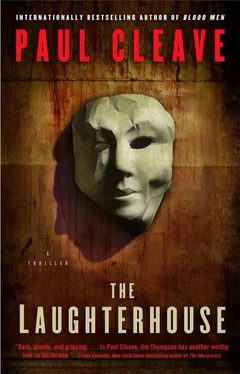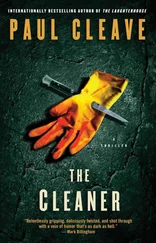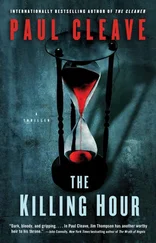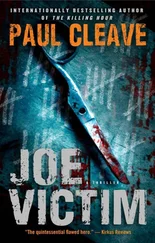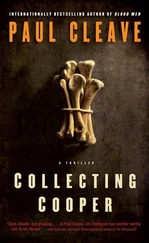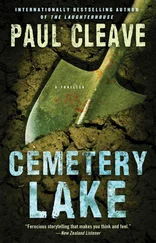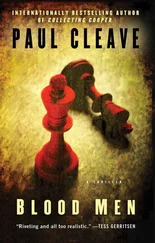Paul Cleave - The Laughterhouse
Здесь есть возможность читать онлайн «Paul Cleave - The Laughterhouse» весь текст электронной книги совершенно бесплатно (целиком полную версию без сокращений). В некоторых случаях можно слушать аудио, скачать через торрент в формате fb2 и присутствует краткое содержание. Год выпуска: 2012, ISBN: 2012, Издательство: Atria Books, Жанр: Триллер, на английском языке. Описание произведения, (предисловие) а так же отзывы посетителей доступны на портале библиотеки ЛибКат.
- Название:The Laughterhouse
- Автор:
- Издательство:Atria Books
- Жанр:
- Год:2012
- ISBN:9781451677959
- Рейтинг книги:5 / 5. Голосов: 1
-
Избранное:Добавить в избранное
- Отзывы:
-
Ваша оценка:
- 100
- 1
- 2
- 3
- 4
- 5
The Laughterhouse: краткое содержание, описание и аннотация
Предлагаем к чтению аннотацию, описание, краткое содержание или предисловие (зависит от того, что написал сам автор книги «The Laughterhouse»). Если вы не нашли необходимую информацию о книге — напишите в комментариях, мы постараемся отыскать её.
The Laughterhouse — читать онлайн бесплатно полную книгу (весь текст) целиком
Ниже представлен текст книги, разбитый по страницам. Система сохранения места последней прочитанной страницы, позволяет с удобством читать онлайн бесплатно книгу «The Laughterhouse», без необходимости каждый раз заново искать на чём Вы остановились. Поставьте закладку, и сможете в любой момент перейти на страницу, на которой закончили чтение.
Интервал:
Закладка:
The briefing room is much bigger than the last time I was here. It used to be a conference room that could sit a dozen people with perhaps standing room for another ten, but now the wall has been knocked down and rebuilt further out to double the size of the room, the Christchurch crime rate demanding the modification. There used to be potted plants in the corner and a couple of prints on the wall of landscapes, but that’s all gone now. There’s a large aerial shot of the city taken last year, and in that moment when the camera shutter flicked open, it would have caught a hundred crimes going on, each of them too small to see.
The window overlooks a city that at the moment has a glow far out to the east, where the sun is breaking the surface. I can see the Avon River snaking its way alongside Durham Street, the banks still green and lit up by the streetlights. A few people are jogging by it, their heavy breath forming clouds in the air. The morning is still, not many other signs of life, not even any birds.
On the main wall of the room is a map with pins locating the crime scenes. There are photographs of the victims on the wall. Photographs of the crime scenes. Within twenty-four hours that wall has almost run out of space. Tomorrow more builders might need to come along and double the size of the room again, maybe even put on an extension that goes out over the side of the building. There are seats set out in a chessboard formation, all of them facing the front. I take one near the back and Schroder takes one near the front. More people file into the room. Many of them are yawning. Many are carrying coffees that weren’t made in the station. Most of them recognize me and do a double take.
Seven o’clock passes and the briefing doesn’t start. Most of us stay in our seats, knowing it’ll just be a matter of minutes. The sky gets lighter outside, the glow of the city becomes stronger. At quarter past seven Superintendent Dominic Stevens walks in. He’s the least tired looking person in the room. Everybody goes quiet and we all watch him take his place at the front. Stevens is barely on the good side of sixty and, according to Schroder, these days on the bad side of irritable since giving up smoking. His head is neatly shaved and his face is stained with old acne scars. His voice is grave and he’s decked out in his well-pressed uniform.
“Four victims,” he says, in way of a good morning, “and I don’t need to tell each and every one of you that you need to be giving one hundred percent,” he says. “And if any of you ever show up to a crime scene again stinking of booze I swear it’ll be your last day with a badge,” he says, his words even and calm and the threat sounds very real. “If I could spare the manpower,” he says, “I’d fire a few of you now just to prove how pissed off I am at you all. That goes for everybody in the room,” he says, focusing his gaze on Schroder for a few seconds before casting a general gaze over the rest of us.
“Now, I don’t want to sound like an asshole by storming in here and busting your balls, but it’s for your own good because obviously you need it. I mean, I sure as hell never thought I’d have to explain to a group of such competent people that showing up drunk at work is a bad idea, but maybe it’s my fault for overestimating you all.”
Nobody in the room is holding his gaze. For some, the desks are the most interesting desks they’ve ever seen; for others, so are their shoes, or the window, or a spot about six feet to Stevens’s right.
“Okay, I can see I’ve made my point,” he says. “Now, I know you’re all tired. Nobody here has ever been through something like this, but some sick fuck is out there killing our citizens, and today we’re going to nail this son of a bitch,” he says, “and when we do then you can all go home and get some sleep. Now, I didn’t want to have to come in here and give you all a pep talk, but you need it,” he says, and then does it, breaking down the routine, stressing the importance of us not messing up, and going over every detail in detail. He looks at me during his final part of the speech, where he says none of us can afford to let the department down, and more than ever this city needs us. I couldn’t agree more.
“I know emotions are running high,” he says. “We buried one of our own yesterday and we’re hurting,” he says, and he looks at an empty chair near the front of the room that I’m guessing Landry usually sat at. We all look at it, and I wonder if last night Stevens watched the latest cop drama to get tips on what to say. “We’re low on numbers and help and for all we know we could have another four dead bodies by this time tomorrow.”
There’s a murmur across the room and I contribute to it. Four more bodies today, maybe a few more tomorrow. It’s hard to be optimistic when there’s a pattern forming and you don’t know the shape of it.
“The results are in on our two oldest, and first victims,” he says. “Multiple stab wounds each,” he says, the number echoing in my head in Jonas’s voice. “Victim number one has nineteen,” he says, “victim number two we’ll know later on. Victim number three has the one stab wound, no defensive wounds, and we have a preliminary report for victim number four, which also states at least a dozen wounds and no defensive wounds. Victim number three falls outside of the scope in what appears to be a disorganized attack compared to the others. Our killer was able to sneak into two retirement communities and one nursing home without being seen, yet he chose to stab victim number three in his home while his wife and kids were inside. One stab wound and no message and two possibilities-Brad Hayward isn’t part of the pattern, or he is part of it and the killer wasn’t able to follow through. We have a dead accountant, a dead teacher, and two dead lawyers-one a criminal lawyer, one a family lawyer-and so far no connection. Somebody must have seen something, somebody must know something. People don’t just start killing people without a reason,” he says, and it’s true. People kill people for money, for love, for revenge. They kill people because they like the way it feels or because they’re hearing voices from God. Those are all reasons. So is killing somebody for their watch. They’re just not always reasons we understand.
He turns toward the board and points at an enlargement of the first victim’s forehead with the note written across it. The marker isn’t fluid across the skin-it’s broken up by the wrinkles, an occasional hairline or two of ink missing. There is blood on the forehead, streaks on one side where it’s been wiped off with a sleeve or a rag to make a cleaner writing slate.
“ ‘You didn’t care enough,’” he says. “Somebody was angry at our victim, he felt let down by him, he felt like something in his past could have not turned out the way it did because of Herbert Poole.”
He points to a similar photo, this one of victim number two’s forehead. Same handwriting, same tiny patches of missing ink where the felt has bounced over a wrinkle, same streaks of cleared away blood. “ ‘Was it worth it?’” he asks. “Complete with question mark. Was what worth it? The same thing that let him down with Herbert Poole?” Then on to victim number four, similar photo, same handwriting, less wrinkles in Victoria Brown’s skin so the handwriting is neater. “ ‘You were complicit.’ Whatever victims numbers one and two did to our killer, he felt victim number four allowed them to do it.” He turns back toward us. “Listen up, people. There’s pressure from the media, from the citizens, and from the victims’ families, and I’ve promised them all we’re going to provide them some answers, and I’m sure as hell going to keep that promise, and you’re all sure as hell going to work your damn hardest to make that happen. We’re drawing the line. No more of this shit anymore in this city. You’re all familiar with the case, I want to hear some feedback. Questions? Theories?”
Читать дальшеИнтервал:
Закладка:
Похожие книги на «The Laughterhouse»
Представляем Вашему вниманию похожие книги на «The Laughterhouse» списком для выбора. Мы отобрали схожую по названию и смыслу литературу в надежде предоставить читателям больше вариантов отыскать новые, интересные, ещё непрочитанные произведения.
Обсуждение, отзывы о книге «The Laughterhouse» и просто собственные мнения читателей. Оставьте ваши комментарии, напишите, что Вы думаете о произведении, его смысле или главных героях. Укажите что конкретно понравилось, а что нет, и почему Вы так считаете.
